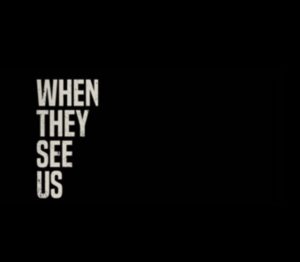
(Image by Netflix via Wikipedia)
Who would have guessed that 30 years after the wrongful 1989 conviction of five boys for the sexual assault of Trisha Meili, the central park jogger, that one of the chief prosecutors in the case, Linda Fairstein, would now be facing repercussions for her role?
Fairstein, the former head of the NY County District Attorney’s Sex Crimes unit, last week confronted significant blowback following the release of the Netflix docudrama, “When They See Us,” a story about the wrongful conviction of the five teens, ranging in age from 14 to 16.

Decrypting Crypto, Digital Assets, And Web3
"Decrypting Crypto" is a go-to guide for understanding the technology and tools underlying Web3 and issues raised in the context of specific legal practice areas.
It paints her and her team as driven by a rush to make arrests fast, ignore evidence conflicting with their theory, and coerce confessions from the suspects. The boys all confessed to the crime, but only after being isolated from their parents, coaxed and badgered for hours by police, and promised that if they admitted they did it, they could go home.
In the wake of last week’s bad publicity, Fairstein, who left the D.A.’s office decades ago to become a crime-fiction writer, lost her longtime publisher (Penguin), and has withdrawn or been asked to withdraw from several boards of directors on which she sat.
It’s clear the boys were wrongfully convicted. In 2001, Matias Reyes, a convicted murderer and serial rapist, confessed to raping the jogger. His DNA matched samples found on the victim. He said he committed the rape alone.
In 2002, the boys, then in their late 20s and early 30s, were exonerated. The city agreed to a $41 million settlement, but neither the prosecutor’s office nor the police apologized. There was no admission of wrongdoing. Maybe they still believe the boys are guilty in spite of evidence to the contrary. Or maybe it’s just too hard to bear the burden of having been responsible for stealing years of their youth.

Meet Me At ILTACON: Opus 2 And AI Workbench
Swing by Booth 800 for a look at the latest in AI-powered case management.
The phenomena is called confirmation bias — a documented and much studied condition that makes it tough for anyone, once wedded to a position, to consider reasonable (and even obvious) alternatives. Nobody likes being proved wrong.
In his excellent book “Blind Justice,” former federal prosecutor Mark Godsey, a co-founder of the Ohio Innocence Project, writes that often due to political pressure and the sheer love of winning, prosecutors push “aggressively toward convictions in cases where a calmer, more objective approach might be better advised.” This is particularly true in cases that command media headlines.
Godsey quotes from an article in the Review of General Psychology, which defines confirmation bias as “the seeking or interpreting of evidence in ways that are partial to existing beliefs, expectations, or a hypothesis in hand.”
The phenomenon is suffered by everyone from teachers (“That’s the kid who always misbehaves”) to parents (“She’s always the late one”).
Information that conflicts with pre-existing beliefs are ignored.
Confirmation bias is particularly pernicious because most people don’t recognize they have it. How many times have prosecutors told me they are not biased; that the facts are clear; that they’re certain about what happened? So certain are they that anything contrary to their position is deemed either irrelevant or explained away. Even when a jury acquits, their reaction often is, “You just tricked them.” Or, “The jurors got it wrong.”
I admit that prosecutors aren’t the only ones in the criminal justice system who suffer this bias. Defense attorneys often believe their clients are lying when they say they didn’t commit a crime (I’m guilty of that). And judges often adopt a presumption of guilt rather than innocence.
But because the power to develop cases lies with prosecutors, their confirmation bias is likely to cause the most harm. It starts the ball rolling. Once a case is developed, a suspect arrested, and an indictment voted, the presumption of innocence slips away like water in your hand.
For those who think prosecutors’ work is to do justice and uncover the truth — that’s not how our adversarial system works. Prosecutors (like anyone in a fight) want to win. They celebrate convictions the way an athlete celebrates a trophy. Godsey describes in his book a moment when, after winning a case, detectives treated him to a joy ride through Manhattan, sirens blasting, full speed ahead. A heady experience.
I’m not suggesting that prosecutors intentionally try to convict the wrong person, but once their heels are dug in, it’s difficult if not impossible to move them. Power brings smugness, and prosecutors have a lot of power.
Maybe 30 years after the fact, Linda Fairstein doesn’t deserve the hate mail she’s now receiving. But I can’t help but think that this comeuppance is a good thing. After all, she’s had a long, successful career both as a prosecutor and a writer. Her fall from grace will probably be forgotten in two weeks. She’ll continue with her life.
The boys convicted can’t. They (and their families) continue to suffer the scars of having been in jail that long and having had their youth robbed forever.
If the Fairstein lambasting does anything to encourage prosecutor offices around the country to look over their shoulders, reconsider their initial assumptions, and recognize their own biases — that’s a good thing.
As a cautionary tale, maybe Fairstein’s fall from grace will remind all prosecutors that sometimes even they can be wrong.
Toni Messina has tried over 100 cases and has been practicing criminal law and immigration since 1990. You can follow her on Twitter: @tonitamess.